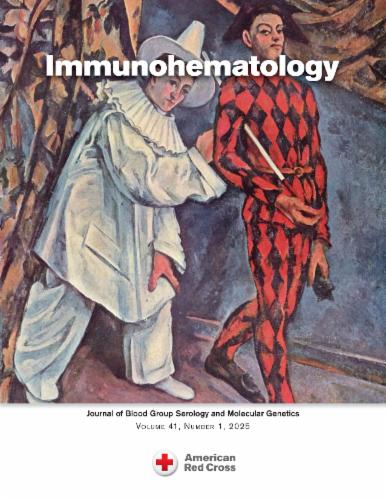Prevalence and clinical implications of unexpected red blood cell antibodies in a tertiary care hospital in Sri Lanka
Publicado en línea: 26 mar 2025
Páginas: 4 - 10
DOI: https://doi.org/10.2478/immunohematology-2025-003
Palabras clave
© 2025 Trileeshiya I. Withanawasam et al., published by Sciendo
Unexpected red blood cell (RBC) alloantibodies can lead to hemolytic transfusion reactions and hemolytic disease of the fetus and newborn (HDFN). Screening for these antibodies is essential to ensure transfusion safety and improve patient care. Prevalence and frequency of unexpected antibodies vary among populations, influenced by genetic and demographic factors. This study addresses the gap in data specific to University Hospital, General Sir John Kotelawala Defence University. A retrospective analysis was performed on 20,212 patients (40.74% pregnant women and 59.25% transfusion recipients) from November 2019 to August 2024, assessing the prevalence, distribution, and clinical relevance of RBC alloantibodies. The study found that 0.80 percent of patients were alloimmunized and 28.87 percent of the antibodies were clinically significant. Common antibodies included anti-Leb (27.27%) and anti-Lea (19.25%); anti-D was the most frequent among Rh antibodies. A significantly higher proportion of pregnant women were alloimmunized compared with transfusion recipients (
